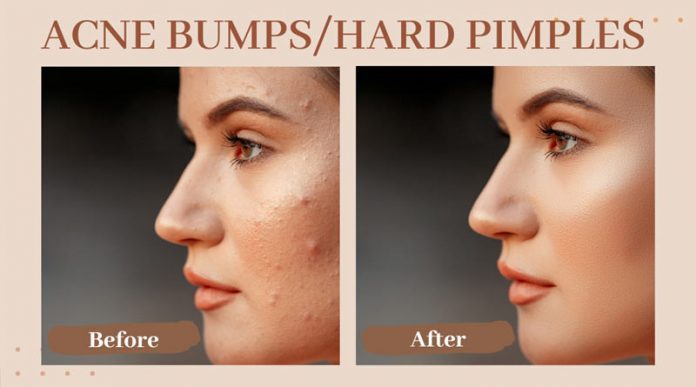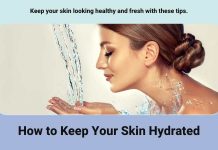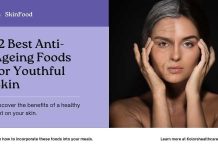Almost everyone might have had a pimple or acne to deal with. However, it is essential to stay aware of various types of pimples to seek professional help when required to treat and get rid of them. Hard pimples are one of the acne types that need immediate attention, as they can be painful and unsightly.
What Are Acne Bumps or Hard Pimples?
Sometimes, a few pimples develop on your skin layers due to the blockage of pores caused by dead skin cells, sebum, and bacteria. These pimples are stiff and hard to touch as they develop deep under the skin and become inflamed with time. These hard pimples look raised like a bump, are painful and last longer. These acne bumps are blemishes that scar the skin as they get inflamed and affect healthy tissues on your skin. These pimples are very tough to heal but can be treated with advanced treatments, prescriptions for aesthetic procedures, and medicated topical creams for application.
About: Dr. Sai Krishna of Kolors Healthcare delves into the origins, remedies, and preventive measures for acne.
Types of Hard Pimples
The following are the different types of hard pimples that have redness, irritation, and pain[1]. These acne bumps might also leave a scar if popped or left untreated.
- Papules: These are small raised bumps which are found over the top layer of the skin’s surface. These hard pimples are not filled with pus and are caused by excess oil production and dead skin cells, which might clog the pores.
- Cysts: These acne bumps are caused when a duct blockage gets severe due to trauma or infection. These external cysts often appear solid as hard pimples under the skin layers and have fluid in them.
- Nodules: These nodules are yet another form of hard pimples featuring a tiny and solid structure. These acne bumps appear in skin colour and change into red when inflamed. They are extremely painful and are not filled with fluid.
- Pustules: These fluid and pus-filled acne form under your skin and look similar to bumps or white pimples. The skin around the pustules are red and grows big. These acne bumps are painful with inflammation and are found in the back, face, and neck [2].
Causes of Acne Bumps and Hard Pimples On Face
Acne bumps or hard pimples can be caused by several factors, which include:
- Polycystic Ovarian Syndrome or PCOS: Acne bumps are commonly found among women diagnosed with PCOS due to the higher levels of androgen produced in their bodies. Women with PCOS generally have hard pimples and acne bumps on their upper back, face, neck, and chest.
- Fluctuations in Hormones: Rapid changes in hormone levels after puberty or during pregnancy will also cause acne bumps. Women develop hard pimples during menopause or when expecting their periods.
- Excess Sebum Production: During pregnancy or puberty, your body tends to release a high amount of hormones. This, in turn, can trigger excess sebum production, which may cause acne bumps. It also increases the risk of infection due to the action of Propionibacterium in your blocked skin pores.
- Stress: Several studies indicate that high stress [3] levels are connected with the rise of acne bumps due to the production of neuropeptides that occurs during stress and anxiety[4].
- Genetic Factor: If you are from a family with your brother, sister, or parents facing acne problems, then your genes would determine the extent of the severity of your hard pimples or hard acne.
- Makeup Products: If you are using chemically laced and oil-based makeup products or cosmetic items, then your skin might react to some of the potent ingredients. These products might induce acne breakouts or hard pimples by blocking skin pores.
- Side Effects of Medications: In case you are on medication for chronic medical conditions, which may contain anabolic steroids and corticosteroids, then it can induce acne breakouts. If you are using hormonal contraceptive pills or medications with testosterone, it might also trigger hard pimple flare-ups.
Treatment Options for Hard Pimples
Topical Creams
Your dermatologist would prescribe topical creams that contain effective ingredients to cut down the production of excess oil by the sebaceous glands, relieve inflammation, unclog blocked pores, and kill acne-inducing bacteria[5].
Salicylic Acid Cream
Skin creams with Salicylic acid possess exfoliating properties to control oil production levels in your skin. These creams and lotions are formulated to break down and remove the oil by dissolving it from clogging the pores. Salicylic acid also removes the dead cells blocking the pores to prevent them from building up to form pimples.
Benzoyl Peroxide Cream
This cream is a perfect choice to treat cystic nodules and cystic acne, as it combats the infection-causing bacteria, which triggers inflammation and pain. It also removes excess oil and alleviates the building of dead cells.
Azelaic Acid Cream
This cream is formulated with anti-inflammatory properties that help lower the inflammation and severity of acne bumps. It also prevents hard pimple formation from maintaining clear skin free from infection. It kindles the turnover process of your skin cells to eliminate the buildup of impurities in the skin and replaces the old skin cells with new ones. This cream also lowers irritation and repairs the damage in the skin tissues to get a supple and smooth complexion.
Clindamycin Antibiotic Cream
This topical cream enhances the appearance of the blemishes created by the hard pimples. In addition, it contains antibacterial properties that prevent the multiplication of microorganisms that cause acne breakouts.
Retinoid Creams
Creams with effective ingredients like tretinoin or retinoids are an effective way to treat hard pimples. These ingredients can enhance your skin’s cell turnover ability, repair damaged skin tissues and heal scars after clearing the hard pimple. In addition, retinoids can make acne pimples less visible by lowering inflammation, pain, and reddishness.
Oral Medications
If you have been dealing with acne bumps or hard pimples consistently after a specific age, then your dermatologist would prescribe oral medications, such as:
- Antibiotic Medicines: Low-dose antibiotic medications like macrolide, tetracycline, or amoxicillin are prescribed to clear the acute symptoms associated with hard pimples [6]. These medicines will also soothe your pain and inflammation while preventing acne-inducing bacteria.
- Contraceptive Pills: It is considered to be an effective treatment for females, as it helps in balancing the hormones that lead to acne. This, in turn, will prevent the sebaceous glands from producing excess oil, that can cause clogged pores. Consult your doctor to learn about the side effects of the pills to make a well-informed decision for treatment for hard pimples.
- Isotretinoin: This oral retinoid medication is used when your hard pimple isn’t responding to other treatments. It is rich in anti-inflammatory prowess, shrinks the size of the pimples, unclogs the skin pores, lowers oil production, and kills infectious bacteria.
Treatments Performed at Clinics
If your hard pimples are not responding to oral medications or topical treatments, your dermatologist will suggest any of the following treatments.
- Laser Therapy: This advanced treatment utilizes a laser beam with high-frequency radio waves and specific heat over the hard pimple-affected area to break it down. This therapy with laser improves collagen production and heals pimples and tissue damage quickly.
- Manual Drainage: An expert professional will perform this procedure by creating a tiny incision on the skin to reach the nodules or cysts and drain them. Then they will be removed without leaving a trace with a minor surgical procedure.
- Steroid Shots: Cortisone shots will be administered on the affected site to lower inflammation and pain and to fasten the healing process. Choose the services of an experienced dermatologist to treat stubborn hard pimples with these shots.
Prevention of hard pimples
Following these tips regularly will help prevent acne breakouts or the formation of hard pimples. They are:
- Use a mild facewash to wash your face twice daily.
- Avoid using abrasive scrubs, soaps, and creams, which devoids the skin of its natural oils and lead to severe inflammation and irritation.
- Do not touch the hard pimples or your face regularly, as it can lead to the excess of debris on the skin leading to pimples.
- Avoid popping your pimples, as it can leave a permanent scar and worsen it[7].
- Go for chemical peels to speed up the acne-healing process.
Avoid self-medication, as acne bumps require the immediate attention of an experienced medical professional. He can determine the cause behind it and prescribe the right treatment combination for clearing the hard pimples.
References
- https://www.nhsinform.scot
- Elika Hoss, MD, Senior Associate Consultant, Mayo Clinic, Scottsdale, AZ – https://www.pennmedicine.org
- University Hospital Centre Zagreb, University of Zagreb School of Medicine, Croatia – https://pubmed.ncbi.nlm.nih.gov/28871928/
- Department of Dermatology, Faculty of Medicine, University of Jeddah – https://www.ncbi.nlm.nih.gov/pmc/articles/PMC5722010/
- https://www.webmd.com
- Isabella Backman – https://medicine.yale.edu
- American Academy of Dermatology – https://www.aad.org/news/how-to-treat-deep-painful-pimples









